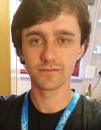Objective 4
Developing AI tools to reduce adverse events in those with MLTCs.
As people age they become likelier to experience unexpected health problems, known by researchers as ‘serious adverse events’. Objective 4 aims to improve how we deal with these problems. The first step is to improve the recording of such events. Electronic health records use a combination of codes and free text – notes written by the medical professionals treating the patient. We will use a computerised analysis technique called Natural Language Processing to develop the information we can get from free text. This will provide data on adverse events e.g. falls, delirium, and the resulting outcomes, such as loss of independence and care home admission. It will also give information on other important details such as where people live, and who they rely on for care, which influence adverse events. This enhanced data will allow us to better predict adverse events. We know roughly which groups of people will have unexpected health problems (older people, single people), but if we can predict which individuals will develop them, we can apply more effective care.
The next step is to understand the routes patients take through the healthcare system, referred to as “care pathways”. A patient with a hip fracture might typically start in A&E for rapid surgery, move to an orthopaedic ward, and finally transfer to medicine for the elderly for rehabilitation. But adverse events can change this pathway, so we will use various Artificial Intelligence techniques to develop an in-depth understanding of care pathways, and use this understanding to develop new pathways of care for those vulnerable to adverse events.
Clinical

Bruce Guthrie is Professor of General Practice at the Usher Institute, in the Edinburgh Medical School. He is also the director of the Advanced Care Research Centre.
Bruce is a mixed methods health services researcher with an interest in the quality and safety of health and social care, particularly in relation to multimorbidity and polypharmacy. As well as research, he works clinically as a GP and works closely with the NHS and government to improve healthcare quality and safety. Find out more about Bruce at the link below:

Atul Anand is an academic geriatrician, senior clinical research fellow and clinical lead for the Lothian DataLoch. His research focuses on routine data-enabled trials of accelerated care pathways and development of automated tools for identifying frail patients at the hospital front door. He will contribute clinical and frailty expertise across the programme, particularly in relation to objective 4 work examining adverse events associated with complex multimorbidity and polypharmacy in acute care. Find out more about Atul at the link below:

Dr Arakelyan’s expertise is in public health research and practice. Her research focuses on examining health system responses to prevention and control of chronic conditions and co-development and evaluation of health service improvement interventions. She has a research track record spanning a period of 13 years in which she published over 25 scientific articles, reports, and briefings. Dr Arakelyan currently uses participatory and system thinking methods in partnership with patients, caregivers, health and social care professionals, and wider stakeholders to explore systems problems and co-design hospital- and community-based complex interventions to optimise health and care services for people with multimorbidity and their informal caregivers.

Nazir Lone is Senior Clinical Lecturer in Critical Care and Director of Research for UK Intensive Care Society. He has methodological expertise in epidemiology/data science, particularly applied to large datasets in acute/critical care health service settings. In national roles, he leads data-driven programmes focussed on healthcare improvement in Critical Care. He will contribute clinical and multimorbidity expertise across the programme and lead the objective 4 work in relation to complex multimorbidity in acute care. Find out more about Nazir at the link below:

Marcus Lyall is a consultant physician who leads regional data-driven innovation in acute medicine, part of the governance team for the Lothian DataLoch, and a clinician data scientist researching outcomes and challenges in unscheduled care clinical pathways. He will contribute clinical and frailty expertise across the programme, particularly in relation to objective 4 work examining adverse events associated with complex multimorbidity and polypharmacy in acute care.

Lucy is a psychiatrist and epidemiological researcher. In August 2022, she completed her specialty training in Old Age Psychiatry and finished her Clinical Lectureship funded by NHS Education for Scotland and the Chief Scientist Office. In 2020, she completed a PhD in the epidemiology of multimorbidity and polypharmacy with mental and brain health. Her clinical experience includes a year's training (endorsement) in liaison psychiatry. She is now an Atlantic Fellow for Equity in Brain Health at the Global Brain Health Institute (GBHI) and is based at the University of California San Francisco (UCSF) for this one-year programme. Find out more about Lucy at the link below:
Natural Language Programming

Bea Alex is a Chancellor’s Fellow at the University of Edinburgh and has over 15 years of expertise in text mining and natural language processing with applications in the healthcare sector. She co-leads the Edinburgh Clinical NLP group with Dr. Honghan Wu. She will lead the objective 3 Natural Language Processing (NLP) geoprofiling activity, lead the objective 4 NLP to identify adverse events work in Edinburgh, and support external validation/transferability work with Dr Wu in UCL. Find out more about Bea at the link below:
Honghan Wu is a lecturer and group lead (https://knowlab.github.io/) at Institute of Health Informatics, UCL and holds an MRC/HDR-UK Rutherford Fellowship. His research uses text analytics and Knowledge Graph techniques for health data research. His text-analytics tool (CogStack-SemEHR) is routinely run at 5 NHS Trusts on > 3.5m patient records and used by > 60 clinicians. He will lead the Natural Language Processing work in UCL, and lead external validation/transferability work using large-scale data at London NHS Trusts. Find out more about Honghan at the link below:

Dr. Imane Guellil is interested in Natural Language Processing, including sentiment analysis, automatic translation and, more recently, named entity recognition and disambiguation. She is a pioneer working on the Algerian dialect and sentiment analysis of Arabizi and Arabic dialects. Her recent experience at Aston University as a Data Science Researcher (Knowledge Transfer Partnership associate) has enabled her to embed her academic NLP/data science expertise into the industrial products of a UK company managing large document collections. She was responsible for adapting NLP techniques to the company's needs for identifying the entities of interest in their documents in a much more effective way than what they used until now and embedding the knowledge within the company. Before working for Aston University, Dr. Guellil has occupied an assistant professor position for four years at the Higher School of Applied Science in Algeria, where she could supervise different groups of students on different NLP projects. She had the opportunity to collaborate with researchers from different universities worldwide, and she is looking forward to establishing more collaborations and partnerships. Imane will deliver NLP derivation and internal validation in Objective 4. Find out more about Imane at the link below:
Abul will work under the direction of Honghan Wu. He has a PhD in Natural Language Processing (NLP) and Medical Informatics from Birkbeck, University of London. He has recently joined as a PostDoc at The UCL Institute of Health Informatics. His research involves extracting health information from textual sources by applying machine learning and deep learning models. Find out more about Abul at the link below:
Our new PDRA will be using her clinical expertise to enrich clinical free text from the Lothian DataLoch. Sam will use open source annotation tools to identify and annotate information about adverse events, medium-term outcomes, social context and functional status from free-text sources such as GP records, hospital letters, discharge summaries and inpatient notes.
Artificial Intelligence

Jacques Fleuriot is Personal Chair of Artificial Intelligence, and Director of the Artificial Intelligence and its Application in the School of Informatics. His research focuses on AI modelling, which spans areas such as formal verification, process modelling, and explainable AI in healthcare and other complex domains. Find out more about Jacques at the link below:

Luna received a MSc in Industrial Biotechnology from the University of Milan Biocca and her PhD in Computer Science from the University of Edinburgh. She has held postdoctoral research positions at the University of St. Andrews, and at Edinburgh University in the MRC Human Genetics Unit and the Edinburgh Parallel Computing Centre.

Paola is computer scientist with a background in machine learning and statistical modelling. She has worked for several years with neuroimaging and biomedical data with a focus on predictive modelling. Paola is interested in multi-modal data integration and applications of AI to health data, and will deliver analysis of serious adverse event occurrence and prediction tool development. Find out more about Paola at the link below:

Jake is a computer scientist with a background in artificial intelligence, including interactive theorem proving and machine learning. He has extensive experience working on issues in and around knowledge representation and automated reasoning. Jake is interested in applications of symbolic (and other) AI techniques and process mining to clinical data and will deliver analyses of serious adverse event occurrence and prediction.

